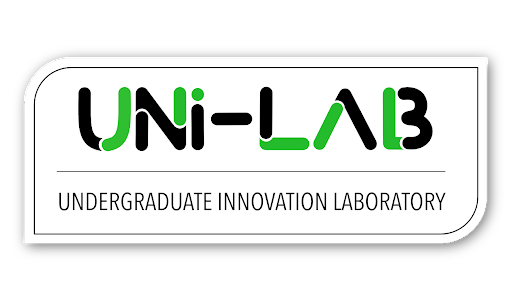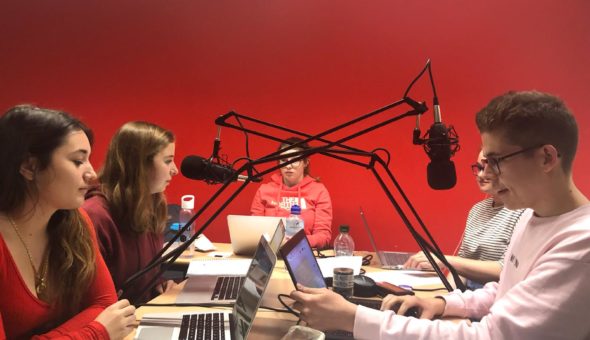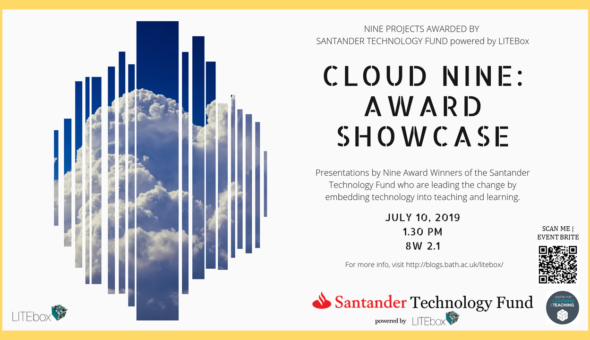Dr Peter Sloan, Lecturer, Dept. of Physics was awarded approx. £5000 by LITEbox - Santander Technology Fund for a duration of three semesters from Feb 2018 to Sept 2019 to create and run UNi-LAB, a makerspace to enhance creative thinking and support the enthusiastic desire of physics undergraduates. Here is their journey so far.
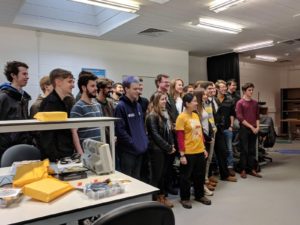
UNi-LAB opened its doors in January 2018 with the hope that it could become a space for students to use what they learnt in class in a fun and creative way. Since then the students have built numerous gadgets and gizmos, all while learning new a practical skills including electronics and circuit boards, 3D modelling and coding.
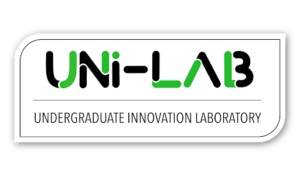
The idea to create a makerspace at the University of Bath came from the enthusiasm of the students.
“I have always been interested in building my own stuff and creating fun devices and gadgets, but haven’t had the resources to do so.”
“Throughout my whole education all I’ve ever seen is mainly from a textbook, but it would be amazing to have the resources and time to enjoy science and be able to play with it.”
Source: More on Making a Maker Club
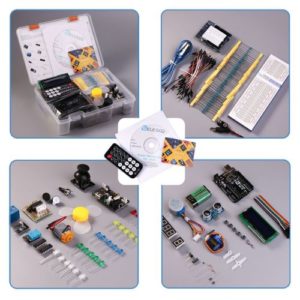
ELEGOO UNO Project Super Starter Kit
At UNi-LAB they have access to laser cutting, 3D printing, arduinos, raspberry pis, electronics, sensors, software and an abundance of knowledge from academics and technicians from many fields to help them create whatever they can think of. They now have the opportunity to go beyond their course and develop what they learn into real-world skills that not only make them more employable but that they enjoy doing.
“I w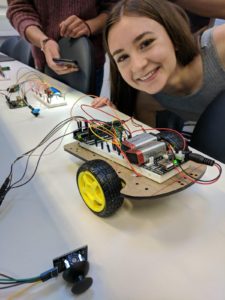 as terrible at coding before it started and I had no idea how to even get something to move. Now I’ve got so many ideas of things I want to do and a place to do them. “
as terrible at coding before it started and I had no idea how to even get something to move. Now I’ve got so many ideas of things I want to do and a place to do them. “
The students come to the maker space every Wednesday afternoon and spend as much time as they like tinkering with their projects, continually improving and adding to them. Many take their projects home to work on them in the meantime and come back each week with new additions. The progress that many of them have made is remarkable and they now have the confidence to manage projects on their own and know exactly what to do to complete them. Their imagination is endless and so far they have created a remote control car with distance sensing to avoid colliding with walls, an LED version of the classic snake game, a digital thermometer, a nerf gun radar system, a digital message board, a parking sensor and many more, with even more ideas yet to be realised.
"The club has opened my eyes to how cool technology is - if you can think of it, you can probably make it!"
With a brand new intake of eager students it's clear that UNi-LAB will continue for the foreseeable future and many more 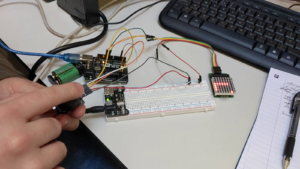 students will be able to benefit from the facilities and expertise available. With no formal teaching, UNi-LAB has proven how determined a student with an idea can be and it has been fantastic to see them all collaborating and learning from each other in order to complete their projects. There are plans for current students to take what they have learnt and write it down in the form of instructions for any prospective students to learn so the knowledge can be available even after they have moved on from the university.
students will be able to benefit from the facilities and expertise available. With no formal teaching, UNi-LAB has proven how determined a student with an idea can be and it has been fantastic to see them all collaborating and learning from each other in order to complete their projects. There are plans for current students to take what they have learnt and write it down in the form of instructions for any prospective students to learn so the knowledge can be available even after they have moved on from the university.
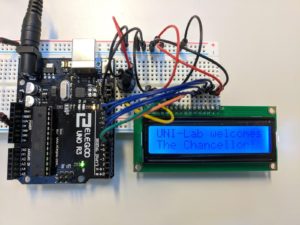 It is also clear that in the last 10 months UNi-LAB has only scratched the surface of what it could do to benefit students, and with more equipment and more time this club could give the students a whole new addition to their degree.
It is also clear that in the last 10 months UNi-LAB has only scratched the surface of what it could do to benefit students, and with more equipment and more time this club could give the students a whole new addition to their degree.
Written by: Charlotte Parry (PhD student and day-to-day organiser of UNi-LAB)
Respond

